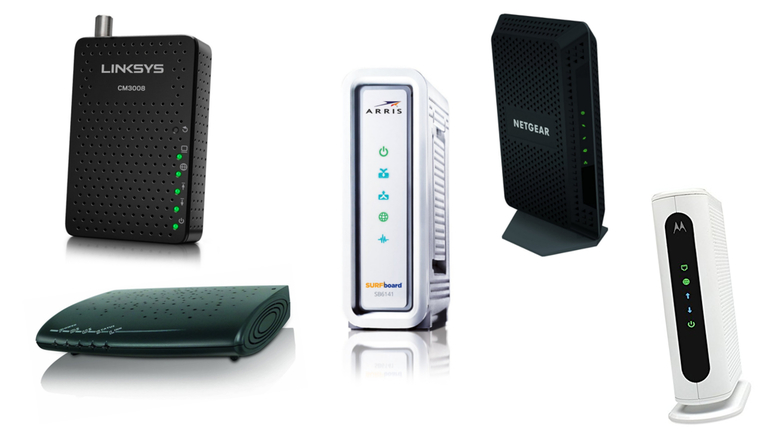
Comcast is the largest home Internet service provider in the United States. Millions subscribe to their Xfinity service. But a surprising amount of subscribers overpay each month, thanks to the company’s long-running home equipment rental racket. Renting a modem is completely unnecessary when it is so easy to purchase and set up any of the best Xfinity modems online.
We’ve pitted the company’s top recommended brands head to head to find out which modems best meet the needs of the average user.
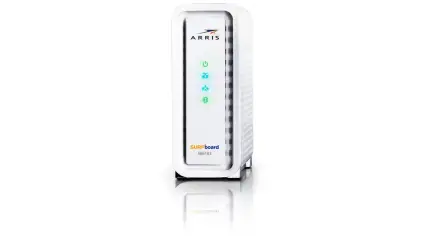
|
Amazon Customer Reviews
|
Price: $59.95 Shop at Amazon | Shop now Read our review |
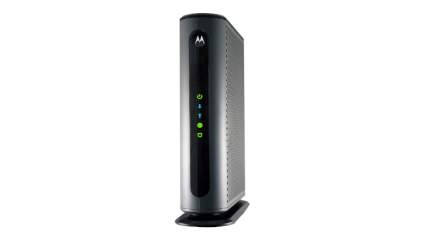
|
Amazon Customer Reviews
|
Price: $190.00 Shop at Amazon | Shop now Read our review |
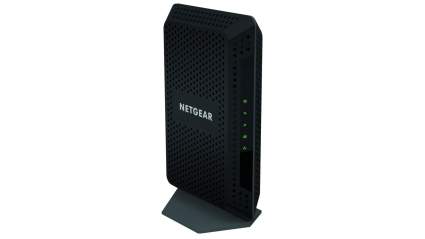
|
Amazon Customer Reviews
|
Price: $149.99 Shop at Amazon | Shop now Read our review |
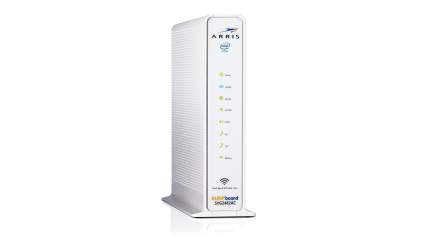
|
Amazon Customer Reviews
|
Price: $125.00 Shop at Amazon | Shop now Read our review |
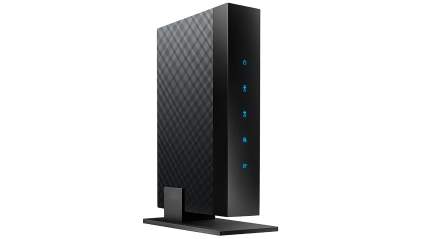
|
Amazon Customer Reviews
|
Price: $249.99 Shop at Amazon | Shop now Read our review |
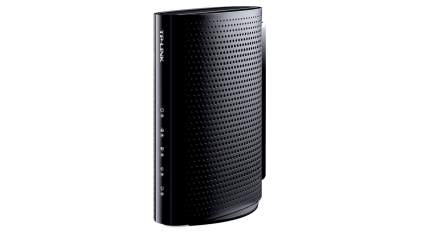
|
Amazon Customer Reviews
|
Price: $89.48 Shop at Amazon | Shop now Read our review |
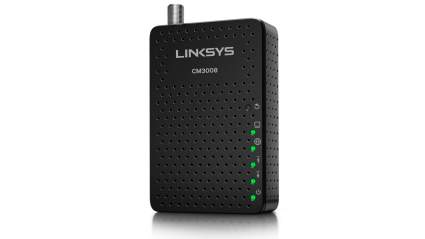
|
Amazon Customer Reviews
|
Price: $72.66 Shop at Amazon | Shop now Read our review |
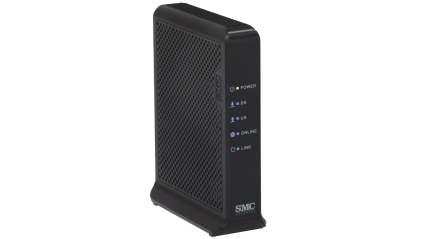
|
Amazon Customer Reviews
|
Price: $39.50 Shop at Amazon | Shop now Read our review |
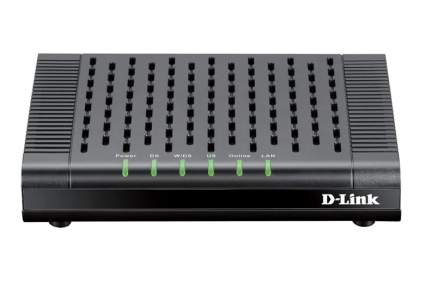
|
Amazon Customer Reviews
|
Price: $37.97 Shop at Amazon | Shop now Read our review |
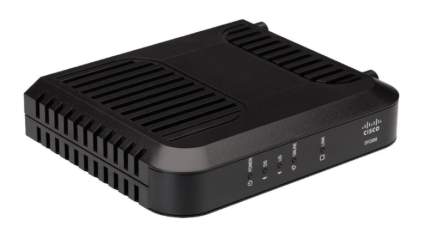
|
Amazon Customer Reviews
|
Price: $98.85 Shop at Amazon | Shop now Read our review |
-
1. Arris SURFboard SB6190 Cable Modem
Pros:- IPv6 compatible
- 32x8 bonded channels
- 2-year warranty
Cons:- No phone adapter
- No RAM (not super important)
- Arris makes new modems too fast
When you search for Xfinity modems, Arris’s equipment is always at the top of the list. Not only do they manufacture the most Comcast-compatible modems out there, but they also make the most popular one: the SURFboard SB6190.
The SB6190 is a standalone modem that pairs with a WiFi router to provide cumulative download and upload speeds of up to 1.4 Gbps and 262 Mbps respectively. The modem has a single gigabit ethernet port on its color-coded backplate. This is fast enough to support Comcast plans up 600 Mbps, but if you have a gigabit internet plan, then you would actually be better off with Arris’ SB8200, which we placed at the top of our list of the best DOCSIS 3.1 modems. (But this upgrade isn’t necessary if you don’t plan to upgrade to gigabit speeds anytime soon.)
Like most modems, the SB6190 has convenient status LEDs that make for simple troubleshooting. Even more convenient, though, is the massive support network of the thousands of others who have used and set up this router before. It pays to be popular. In fact, many of my more experienced readers reached out when I first published this article to mention that the SB6190’s Puma 6 chipset caused problems when it first came out in 2017. These modems have since had firmware updates and they now work on Comcast networks free of lag.
Because of issues like this, Comcast’s list of supported products is always changing without notice. But with the diligent research done by us (and our readers) we’ll do our best to keep this list up to date.
-
2. Motorola MB7621 Cable Modem
Pros:- 24x8 bonded channels
- IPv6 compatible
- Easy setup
Cons:- No phone adapter
- Large footprint
- Runs warm
The Motorola Motorola MB7621 modem is a powerful and efficient modem that supports Xfinity Gigabit plans with its higher than average transfer speeds. It also sports a full-band capture digital tuner, improved heat sinks, and upgraded power handling to protect against power surges.
This is a fairly high-end modem that outperforms many of the above modems in download and upload speeds, but all said and done, might be overkill if you just need a basic hookup. It sports a max downstream of over 1000 Mbps. It has a single ethernet port, which makes this yet another simple modem to set up.
It comes in white or black, which makes it easier to blend in with your decor, and is about the average size for a modem unit. Just plug it into a nearby coaxial port, call Xfinity to tell them you’ve swapped, and you are good to go.
-
3. Netgear CM700 Cable Modem
Pros:- IPv6 compatible
- 24x8 bonded channels
- 128 MB internal RAM
Cons:- No phone adapter
- High price tag
- 1-year warranty
Networking mogul Netgear offers a line of premium modems that are just slightly less celebrated than Arris’. However, Netgear has always had the upper hand when it comes to aerodynamics. That’s because they are behind the stealth bomber-inspired Nighthawk line of gear.
It is regarded as one of the best routers around, and the Netgear CM700 is its angular modem equivalent. The CM700 comes in a well-ventilated black case that helps regulate modem chip temperatures and keep this device from drawing too much attention.
Its max download and upload speeds both top out at a whopping 1.4 Gbps. It has 32 downstream channels and 8 upstream channels, which help it outspeed most of the competition.
But as I’ve already mentioned, a modem won’t reach its max download speed if you don’t pay for the bandwidth you need to do so.
If you don’t subscribe to Xfinity’s Blast or Xfinity Extreme Internet plans, you probably won’t see a difference between the CM700 and Netgear’s lower end CM400 modem.
Still, there are plenty of setups where the extra downstreaming capabilities will be appreciated, especially where online gaming is involved.
So if you want to do ensure you’re doing home networking right, start with the CM700.
-
4. Arris SVG2482AC Modem-Router with Telephony Adapter
Pros:- Telephony adapter
- AC1750 Router built-in
- 2-year warranty
Cons:- High price tag
- Tricky setup
- Combo units are hard to troubleshoot
This modem gets a special mention because it’s one of the only retail modems to support Xfinity Voice, the telephone service featured in the Triple Play package. That being said, when it comes to the price value of Arris equipment, their SVG2482AC telephony modem is at the bottom of the pack.
The modem options for Comcast users are severely limited by the Triple Play, but this Residential Gateway can help make the deal work on your terms.
This modem is capable of download speeds up to 1 Gbps. It includes an AC-band WiFi router to project your wireless network through your home. There is no modem-only version of this product so if you already have your own router that you’d rather use, you will have to bridge it to the built-in router.
The embedded router performs pretty well, though, which is good considering that the placement of your home phone lines might limit where you can place your modem-router. The SVG2482AC has four ethernet ports, two USB ports for network-attached storage, and it can support two simultaneous voice lines.
Even with the higher price of this unit, you will still be saving money by making the switch from a rented unit, especially if you had to sign a multi-year contract with your ISP.
Buy the Arris SVG2482AC Modem-Router with Telephony Adapter here.
-
5. Asus CM-16 Cable Modem
Pros:- IPv6 compatible
- 16x4 bonded channels
- Easy setup
Cons:- So-so support
- Low max upstream
- 1-year warranty
The Asus CM-16 is a relatively new addition to the list of Xfinity modems and it performs just as well as top picks like the Arris SB6190 while being a bit cheaper. If you have a 100 Mbps or slower service plan with Xfinity, then this modem is at the ideal performance point.
Its max downstream is a solid 686 Mbps, and its max upstream is 131 Mbps. It has a single gigabit ethernet port so it only connects to one router, but this is fine for 90% of most home Internet setups.
Its sleek blue LED array keeps you informed that all channels are functioning, blinking and/or changing color if you ever have technical issues. Just note that Asus support isn’t always the most helpful, and their warranty is only one-year instead of two.
-
6. TP-Link TC-7610 Cable Modem
Pros:- 8x4 bonded channels
- IPv6 compatible
- Low price tag
Cons:- No phone adapter
- Low max upstream
- Bulky
TP-Link’s TC-7610-E supports all Comcast packages up to their Extreme 150 plan. For a very reasonable buy-in, this modem can get you a standard 343 Mbps down, 143 Mbps up.
Despite being just a bit bulkier than the Arris SB6183, the TP-Link equivalent has almost identical specs, while generally being slightly cheaper.
And the brand is just as well known within the networking world.
The TC-7610-E claims to be an important network safeguard, but after trying up and down to evaluate this statement, I have no idea what TP-Link is trying to tell us about their modem’s role in Internet safety.
What they should say is that this modem is an efficient plug-and-play box that simply works.
It will be on you to ensure that whichever router you hook up to this modem has its default password and SSID changed, which is an essential task for you to make your home WiFi network secure.
-
7. Linksys CM3008 Cable Modem
Pros:- 8x4 bonded channels
- IPv6 compatible
- Compact
Cons:- 1-year warranty
- No phone adapter
- Low max upstream
Linksys is one of the best-recognized names in networking, and their CM3008 cable modem is the newest addition to their lineup.
It sets itself apart with an Intel Puma 5 chipset, which provides speedy signal processing for data transfers. This modem is capable of 340Mbps down and 120Mbps up.
It has a lone ethernet port, a small and compact casing, and a plug-and-play setup. Aside from that, there isn’t much more than you can ask for out of a modem.
-
8. SMC Networks D3CM1604 Modem
Pros:- 16x4 bonded channels
- Low price tag
- 2-year warranty
Cons:- No phone adapter
- Low max upstream
- Bulky
This small and boxy modem delivers 640 Mbps downstream and 120 Mbps upstream at a competitive price. This the bargain hunter little reason to consider other brands.
A no-name manufacturer like SMC Networks may seem like a questionable choice against the most trusted names in networking. Yet, their D3CM1604 modem has proven its worth as a powerful budget modem that works with all major cable services.
Just note that SMC does not have the same customer support resources as larger manufacturers, so this modem is best left to those who are comfortable setting up their home network without help. You do, however, get a standard two-year warranty.
-
9. D-Link DCM-301 Cable Modem
Pros:- 8x4 bonded channels
- IPv6 compatible
- 2-year warranty
Cons:- Limited availability
- Low max upstream
- No phone adapter
D-Link is a company that has abstained from jerking their customers around and releasing constant “updated versions” of the same product over and over again.
This certainly cannot be said about some other companies on this list.
Instead, their DCM-301 modem has been their go-to budget modem over the last couple of years. It is built to meet fairly standard specs, offering speeds of 343 Mbps down, and 150 Mbps up.
Like all modems, the DCM-301 is backwards compatible with other DOCSIS standards, like 2.0 and 1.1. If you are on Comcast, it is unlikely that you are on anything but DOCSIS 3.0. But then again, you never know when you live out in the countryside.
This modem is compact and thoroughly ventilated, which means it will silently disappear into the corner of your room while you enjoy flawless Internet service. All in all, the D-Link is a solid pick.
-
10. Cisco DPC3008 Cable Modem
Pros:- Low price tag
- Compact
- 8x4 bonded channels
Cons:- No power button
- No phone adapter
- Low max upstream
The Cisco DPC3008 Cable Modem offers reliable performance at a value price, making it an easy pick for those who are buying a modem to save on monthly fees.
Its performance is pretty bare-minimum, offering a max downstream of 340 Mbps and a max upstream of 120 Mbps. These are fast enough to handle most basic Comcast or Xfinity plans but could be the limiting factor if you have a gigabit Internet plan.
It is DOCSIS 3.0 compliant and it is also backward-compatible with older DOCSIS standards. It has a single coax port and a single ethernet port.
Apart from not having a power button, the DPC3008 leaves little to complain about. It is a reliable and inexpensive modem that is at least as good if not better than Xfinity’s rental gear.
Find more Cisco DPC3008 Cable Modem information and reviews here.
Ditching The Rental is Easier Than You Think
Still not sure you have the technical know-how to select, install, and activate a compatible Xfinity modem on your home network? Well, you do and we're here to remind you why.
Comcast scares its customers out of buying third-party equipment by warning that it may grow outdated or have a compatibility issue.
The truth is that Comcast will continue to support both the established DOCSIS 3.0 standard and the newer DOCSIS 3.1 standard for the foreseeable future, so there is no worry about compatibility as long as you shop carefully.
Additionally, buying your own modem is far less expensive. Even if you do find your gear made suddenly obsolete, getting a new modem is still cheaper than another year of rental fees.
The average cost of renting a modem is $10 a month, or $120 a year. The average cost of buying a modem? $70. It's not hard to see that buying is the right move in a majority of situations.
How to Swap Comcast Xfinity Modems
As this article from MarketWatch explains, most users will save $10 to $15 in fees by purchasing their own modem. They'll likely upgrade their network signal strength in the process.
If you're intimidated by the idea of setting up a cable modem, all you really have to do is plug it into your coaxial port, power it on, and you are good to go.
To get rid of your rented modem, all you need to do is call Xfinity and tell them you want to drop off your rented modem at the nearest Service Center.
Sound easy? It is. And though we already did the dirty work of putting Xfinity's suggested models to the test, you can still use their official retail equipment compatibility tool to ensure that your modem choice is compatible with your plan's download speed.
Don't Forget the Router
Just keep in mind that if you don't already have your own router, you will need one to wirelessly propagate the signal through your home. Preferably, you should get a Wi-Fi 6 router, which is the newest generation of wireless protocol.
You can also save a bit of money by purchasing a modem/router combo unit instead, though it is best to use two discrete units to make for easier troubleshooting and upgrades.
There are plenty of different options for you to choose from, but however you go about it, buy your own networking equipment so you have one less monthly fee to worry about.